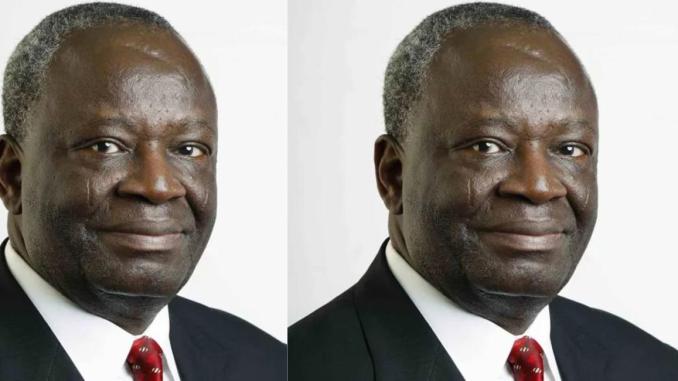Ex-Minister of External Affairs and Nigeria’s ex-Permanent Representative to the United Nations, Prof. Ibrahim Agboola Gambari, has revealed that no fewer than 1,000 insurgent groups are now active across Africa.
He made the revelation on Monday while delivering his goodwill message at the ongoing Africa Chiefs of Defence Staff Summit in Abuja.
He referenced a report conducted by the African Research Network for Regional and Global Governance Innovation, headquartered at the Savannah Centre for Diplomacy, Democracy and Development in Abuja.
Gambari said, according to research conducted by the African Research Network for Regional and Global Governance Innovation, headquartered at the Savannah Centre for Diplomacy, Democracy and Development here in Abuja, there are now over 1,000 insurgent groups in Africa, and the number keeps rising.”
“The majority of our Regional Economic Communities, which were originally intended to focus on economic integration, are now devoting much of their attention to issues of banditry, terrorism, and insurgency,” he said, warning that the continent risks becoming a permanent war zone unless urgent, practical, and collective measures are taken.
The summit, hosted by Nigeria’s Chief of Defence Staff, General Christopher Musa, is the first of its kind, with defence chiefs from across the continent meeting under the theme: “Combating Contemporary Threats to Regional Peace and Security in Africa: The Role of Strategic Defence Collaboration.”
He reminded participants that as far back as the late 1950s, Ghana’s first President, Kwame Nkrumah, envisioned a continental African High Command to ensure joint security across Africa. While the idea gained momentum, it never materialised.
Nigeria later championed regional security through ECOWAS and its military wing, ECOMOG, which intervened in Liberia and Sierra Leone in the 1990s. Those missions, supported by Ghana and other states, were seen as trailblazers in West Africa’s collective defence history.
But decades later, insecurity has not abated. Instead, the threats have multiplied, spreading from the Sahel to Central Africa, East Africa, and even parts of Southern Africa.
“We must first secure our respective countries before we can, in the concentric circles of defence policy, secure our regions, and ultimately secure our continent,” Gambari said.
He criticised the African Union’s slow progress in building a sustainable peace and security framework.
The African Standby Force, designed to provide rapid deployment capabilities, was supposed to be fully operational by 2015. A decade later, it remains largely theoretical. Similarly, the AU’s ambitious “Silencing the Guns by 2020” target has now been pushed back to 2030.
Yet, wars continue to rage in Sudan, South Sudan, the Democratic Republic of the Congo, the Sahel, and parts of Southern Africa, leaving millions displaced and thousands killed annually.
Gambari warned that without joint military training, intelligence sharing, interoperability of weapons, and capacity building—especially in strategic airlift— Africa’s defence ambitions will remain on paper.
He called for urgent investment in indigenous defence industries to reduce reliance on imported arms.
“Our continent must design, own, and build a security architecture that guarantees our sovereignties and ensures human security in all its dimensions,” he said.



